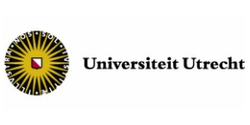PhD: Social Cognition and Reading Behaviour in a Digital World
Updated: 26 Jan 2025
The digital world has transformed the ways we read, offering both challenges and opportunities. To understand these challenges and opportunities it is important to consider reading processes and outcomes from multiple perspectives. We are searching for a PhD candidate who can contribute, together with a multidisciplinary research team, to the development of a conceptual model that considers the social and cognitive aspects of the processing of and engaging with written texts in a digital world. This model will serve as starting point for national and international research.
Your job
This project is part of the national research programme (Nationale Wetenschapsagenda) ‘Becoming literate in a digital age: Adapting reading education in the Netherlands’. The educational system currently fails Dutch students. Nearly 25% of 15-year-olds in the Netherlands do not reach a minimum of reading comprehension and struggle significantly in their ability to evaluate and reflect on written texts.
The ultimate goal of the programme as a whole is to understand which types of reading education aid students, especially those who are at risk of a delay in their development as readers, to acquire the ability to process written information and to engage in reading behaviour in a digital world. The model that we develop will serve as foundation for the development of teaching methods and materials that can be considered by other projects in the programme.
The PhD project has two main objectives:
- Developing and testing a multidisciplinary, conceptual model that integrates social and cognitive aspects of reading behavior in a digital world; and
- identifying key leverage points and actions needed to change those, to inform the design of educational interventions for promoting reading behavior at primary and secondary schools in the Netherlands.
In the PhD project we address questions such as: How do students form reading goals? How can we challenge them to engage in reading and to attend to text? How are goal formation and reading engagement affected by the social environment?
As a PhD candidate you are member of the Goallab at the department of Psychology at Utrecht University that combines fundamental and applied approaches to study human cognition and motivation in social contexts. You will also be a member of the consortium for Becoming literate in a Digital Age. You will combine insights from social cognition and motivation sciences with insights on reading comprehension and reading behaviour from different areas of research, such as social and experimental psychology, educational psychology, and psycholinguistics. You will collaborate with educational developers and AI experts, teachers and students.
To allow PhD candidates to gain experiences with teaching, the PhD position also includes teaching (minimum 10%, but more is possible on request of the candidate). The teaching is implemented in the Psychology programme offered by the Social, Health and Organisational Psychology group.
The tasks and responsibilities include:
- conducting research (literature research, designing experiments and surveys, collecting and analysing data, reporting the results), resulting in international scientific publications and a dissertation;
- presenting results at national and international scientific conferences;
- collaboration with consortium members, e.g. researchers from different disciplines, educational organisations, reading specialists, and other stakeholders;
- teaching in the psychology programme (minimum 10%);
- active participation in the research group and the department.
Requirements:
We are looking for a colleague with:
- a Master’s degree (or nearly finished) in Behavioural Sciences or a related field, preferably with a profile in Cognition and Reading Behaviour in Social Context;
- a clear interest in reading comprehension and reading behaviour in a digital world;
- good experimental and programming skills (e.g., E-Prime, Presentation, Gorilla, Matlab, Phython, R) to design and conduct laboratory and field research;
- good methodological and statistical skills;
- the ability to meet deadlines, and conduct research independently and as part of a team;
- good organisational skills;
- good communication skills, written and oral, in both English and Dutch (or the willingness to learn Dutch quickly);
- the ambition to collaborate with and visit (inter)national partners in research.
Salary Benefits:
We offer:
- a position for one year, with an extension to a total of four years upon successful assessment;
- a working week of 38 hours and a gross monthly salary between €2,901 and €3,707 in the case of full-time employment (salary scale P under the Collective Labour Agreement for Dutch Universities (CAO NU));
- 8% holiday pay and 8.3% year-end bonus;
- a pension scheme, partially paid parental leave and flexible terms of employment based on the CAO NU.
In addition to the terms of employment laid down in the CAO NU, Utrecht University has a number of schemes and facilities of its own for employees. This includes schemes facilitating professional development, leave schemes and schemes for sports and cultural activities, as well as discounts on software and other IT products. We also offer access to additional employee benefits through our Terms of Employment Options Model. In this way, we encourage our employees to continue to invest in their growth. For more information, please visit Working at Utrecht University.
36 - 40 hours per week
Heidelberglaan 1

